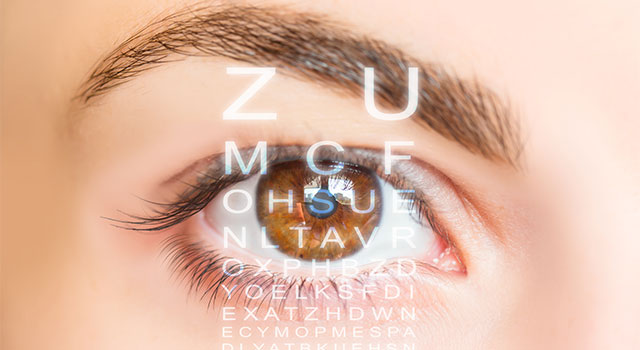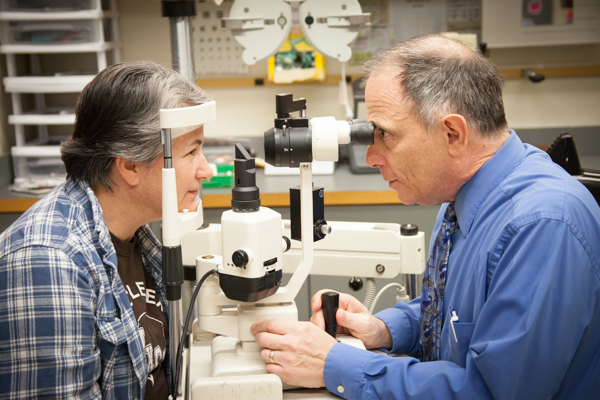Specialized Retina Service Near Me: Top-Notch Eye Treatment Professionals
Specialized Retina Service Near Me: Top-Notch Eye Treatment Professionals
Blog Article
Understanding the Various Eye Issues Treated by Specialized Eye Treatment Professionals
In the realm of eye care, specialized experts play an important duty in detecting and treating a large array of eye conditions. As we embark on this expedition of the various eye conditions attended to by specialized eye care specialists, it becomes apparent that the elaborate internet of eye wellness holds a myriad of interesting understandings waiting to be revealed.
Usual Refractive Mistakes
Refractive mistakes prevail aesthetic problems triggered by a flaw in the eye's capability to appropriately focus light, leading to obscured vision. The most common kinds of refractive mistakes consist of myopia (nearsightedness), hyperopia (farsightedness), astigmatism, and presbyopia. Nearsightedness happens when the eyeball is too lengthy or the cornea is also bent, triggering far-off items to show up fuzzy. Hyperopia, on the other hand, takes place when the eyeball is also brief or the cornea is also flat, leading to neighboring items being out of emphasis. Astigmatism is identified by an irregularly shaped cornea, causing distorted or blurred vision in any way ranges. Presbyopia is an age-related condition where the lens loses its flexibility, making it tough to concentrate on close objects.
These refractive mistakes can be fixed through various techniques, consisting of spectacles, contact lenses, or refractive surgical procedure. Eye care specialists play an essential function in diagnosing and handling refractive errors to aid people attain more clear vision and improve their quality of life.
Age-Related Eye Problems
As people age, their eyes might be susceptible to a variety of conditions beyond refractive errors that can affect their vision and general ocular health. Age-related eye problems prevail and can substantially affect the lifestyle for older grownups. Among one of the most prevalent age-related eye conditions is age-related macular degeneration (AMD), a disease that causes central vision loss and can make tasks like analysis and driving tough. refractive surgeries in al. Cataracts, one more typical condition among older individuals, create clouding of the eye's natural lens, causing obscured vision. Glaucoma, identified by damage to the optic nerve, is additionally more widespread with age and can lead to peripheral vision loss or blindness if left without treatment. Additionally, presbyopia, a condition where the eye's lens sheds adaptability, is an all-natural part of aging and causes trouble concentrating on close objects. Regular eye tests with specialized eye care specialists are important for early discovery and administration of these age-related eye conditions to protect vision and maintain ocular health as individuals expand older.
Vision-Threatening Conditions
Vision-threatening illness include a variety of Get More Information severe eye conditions that have the prospective to considerably impact an individual's eyesight and overall aesthetic function. These conditions pose a risk of long-term vision loss otherwise without delay identified and dealt with by specialized eye care specialists. Some common vision-threatening conditions consist of glaucoma, diabetic retinopathy, age-related macular deterioration (AMD), and retinal detachment.
Glaucoma is a team of eye problems that harm the optic nerve, frequently as a result of high intraocular stress, causing field of vision loss and possible loss of sight if left untreated. Diabetic retinopathy is an issue of diabetic issues that influences capillary in the retina, creating vision disability or blindness. AMD is a modern condition influencing the macula, resulting in central vision loss. Retinal detachment takes place when the retina divides from its underlying cells, causing sudden vision loss that needs immediate clinical focus (refractive surgeries in al).
Early discovery, regular eye exams, and prompt intervention are vital in taking care of vision-threatening illness to maintain sight and maintain lifestyle. Specialized eye care experts play a vital function in diagnosing, treating, and managing these conditions to stop our website irreparable vision loss.

Corneal Problems
Corneal disorders incorporate a spectrum of problems that impact the clear front part of the eye, referred to as the cornea. These disorders can lead to discomfort, aesthetic disturbances, and in extreme situations, vision loss. One common corneal condition is keratoconus, where the cornea thins and bulges external into a cone shape, triggering astigmatism and blurred vision. Corneal dystrophies, such as Fuchs' dystrophy, lead to progressive vision loss due to uncommon deposits in the cornea. Corneal abrasions, frequently triggered by injury or foreign objects, can lead to discomfort, soreness, and sensitivity to light. In addition, infections like keratitis can irritate the cornea, potentially leading to scarring and vision impairment if not quickly treated. Treatment for corneal problems differs relying on the certain problem however may consist of medications, call lenses, or in serious situations, corneal transplants. Routine eye tests are vital for early detection and management of corneal problems to protect vision and eye health and wellness.
Neurological Eye Conditions
Neurological eye conditions involve disorders that affect the connection in between the eyes and the brain, influencing visual processing and overall eye function. These conditions can manifest in different methods, affecting vision, eye motions, and even the control in between the eyes. One common neurological eye condition is optic neuritis, identified by inflammation of the optic nerve bring about vision loss, color desaturation, and discomfort with eye activity.
An additional considerable condition is nystagmus, where the eyes make recurring, uncontrolled activities, affecting aesthetic skill and deepness perception. In addition, problems like amblyopia, frequently referred to as "lazy eye," result from abnormal aesthetic growth in very early childhood years, leading to lowered vision in one eye.
Neurological eye conditions call for specialized treatment from professionals like neuro-ophthalmologists who have expertise in both neurology and ophthalmology. Diagnosis usually includes a thorough eye exam, imaging studies, and cooperation with neurologists to you can look here resolve the underlying neurological issues affecting the visual system. Treatment techniques can consist of drug, vision treatment, or in serious instances, medical treatments to handle these intricate conditions efficiently.

Verdict
Finally, specialized eye treatment specialists deal with a vast array of eye conditions, including usual refractive mistakes, age-related eye conditions, vision-threatening conditions, corneal problems, and neurological eye conditions - refractive surgeries in al. By understanding these various problems and seeking suitable treatment from eye treatment experts, individuals can preserve optimal eye wellness and vision. It is very important to focus on regular eye examinations and adhere to suggested treatment strategies to protect and protect one's vision for the future
Report this page